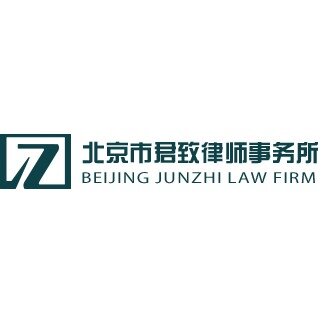Best Commercial Real Estate Lawyers in China
Share your needs with us, get contacted by law firms.
Free. Takes 2 min.
Free Guide to Hiring a Real Estate Lawyer
Or refine your search by selecting a city:
List of the best lawyers in China
About Commercial Real Estate Law in China
Commercial real estate in China encompasses a wide range of activities including ownership, leasing, and development of office buildings, shopping centers, hotels, and industrial warehouses. Over recent decades, China's real estate market has rapidly developed, driven by economic growth and urbanization. The legal framework governing commercial real estate is complex, involving national laws, regulations, and local policies. These include aspects of land use, property transactions, and investment by foreign entities.
Why You May Need a Lawyer
Engaging with commercial real estate in China can be highly lucrative, yet it also presents numerous legal challenges. Common situations where legal assistance might be necessary include:
- Negotiating purchase or sale agreements for commercial properties.
- Advising on lease agreements and resolving disputes between landlords and tenants.
- Navigating the legal complexities of property development projects.
- Guiding foreign investors through China's real estate regulations and investment restrictions.
- Ensuring compliance with local zoning and land-use laws.
- Managing construction contracts and contractor disputes.
Local Laws Overview
Commercial real estate transactions in China are regulated by various laws and policies. Key aspects include:
- Land Ownership and Use Rights: All land in China is owned by the state or rural collectives. Businesses and individuals can acquire use rights through leases from the state.
- Foreign Investment Restrictions: Foreign investors are subject to specific regulations and may face restrictions in certain regions or on specific types of properties.
- Lease Contracts: Governed by the Contract Law of China, lease contracts in commercial real estate must be detailed and comply with local regulations.
- Development and Construction Laws: Development projects require compliance with urban planning and land use regulations, including necessary permits and approvals.
- Environmental Regulations: Environmental protection laws must be adhered to during property development and land use.
Frequently Asked Questions
What is the process for foreign investors to purchase commercial real estate in China?
Foreign investors must establish a local enterprise, typically a Wholly Foreign-Owned Enterprise (WFOE), to purchase commercial real estate. They must also gain approval from local authorities for the transaction.
What are land use rights, and how do they affect commercial real estate transactions?
Land use rights are government-granted rights to use a parcel of land for a specific period. These rights can be transferred, leased, or mortgaged and are fundamental to commercial real estate transactions.
Can commercial tenants sublease properties in China?
Subleasing is generally allowed under Chinese law but must be explicitly permitted in the tenant's primary lease agreement, which should comply with local regulations.
What are the common terms in a Chinese commercial lease agreement?
Key terms include the lease duration, rent payment structure, maintenance obligations, modification terms, and early termination clauses.
How is dispute resolution typically handled in Chinese commercial real estate?
Dispute resolution may involve negotiation, arbitration, or litigation, depending on the terms of the contract and the preferences of the parties involved.
What are the tax implications of owning commercial real estate in China?
Owners may be subject to various taxes, including property tax, land appreciation tax, and enterprise income tax, each with its specific rules and rates.
How do zoning laws impact commercial real estate development in China?
Zoning laws dictate the types of structures permitted in certain areas. Compliance is crucial for obtaining necessary development approvals and permits.
Are there special considerations for hotel development in China?
Hotel developments may require additional permits and adhere to specific hospitality industry regulations, including health and safety standards.
What role do local governments play in commercial real estate transactions?
Local governments have significant influence, as they approve land use rights sales, development plans, and enforce zoning and environmental regulations.
What legal documents are essential in a property development project?
Key documents include the land use rights certificate, construction permits, environmental assessments, and the project contract agreements.
Additional Resources
For further guidance, consider reviewing resources from the following:
- Ministry of Natural Resources of China
- Investment Promotion Agencies in major cities
- Chinese law firms specializing in commercial real estate
- International organizations with local ties, such as the Asia Pacific Real Estate Association
Next Steps
If you require legal assistance in commercial real estate in China, consider these steps:
- Identify your specific needs or issues within commercial real estate (e.g., purchase, lease, development).
- Research legal professionals or firms with a specialty in Chinese commercial real estate law.
- Consult with multiple legal experts to gain varied perspectives and choose a lawyer or firm best suited to your requirements.
- Prepare all relevant documents and information for your legal consultation to ensure an efficient and comprehensive discussion.
- Discuss with your chosen legal advisor the best strategies for compliance and smooth transaction processes in your commercial real estate ventures.
Lawzana helps you find the best lawyers and law firms in China through a curated and pre-screened list of qualified legal professionals. Our platform offers rankings and detailed profiles of attorneys and law firms, allowing you to compare based on practice areas, including Commercial Real Estate, experience, and client feedback.
Each profile includes a description of the firm's areas of practice, client reviews, team members and partners, year of establishment, spoken languages, office locations, contact information, social media presence, and any published articles or resources. Most firms on our platform speak English and are experienced in both local and international legal matters.
Get a quote from top-rated law firms in China — quickly, securely, and without unnecessary hassle.
Disclaimer:
The information provided on this page is for general informational purposes only and does not constitute legal advice. While we strive to ensure the accuracy and relevance of the content, legal information may change over time, and interpretations of the law can vary. You should always consult with a qualified legal professional for advice specific to your situation.
We disclaim all liability for actions taken or not taken based on the content of this page. If you believe any information is incorrect or outdated, please contact us, and we will review and update it where appropriate.
Browse commercial real estate law firms by city in China
Refine your search by selecting a city.














